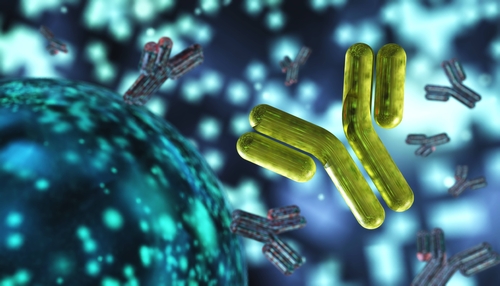BrickBio’s antibody-drug conjugate BRKB-28 showed preclinical effectiveness in eradicating breast cancer cells while leaving healthy cells unharmed, the company announced.
BRKB-28 combines an antibody against a cancer protein with a toxic payload, using a linker molecule that connects the two. Once bound to its target, BRKB-28 releases its toxic compound into cancer cells, triggering their death.
Designed with BrickBio’s bioconjugation platform, BRKB-28, which is also being developed for gastric cancer, showed a better performance than leading breast and gastric cancer biologics, which were reported to kill a significant number of healthy cells.
BrickBio states that its platform enables the custom tailoring of any protein, including modifying a protein at any of its sites. These changes can boost the efficacy of protein-based therapeutics, like antibody-drug conjugates or bispecific antibodies (one that can simultaneously bind to two different types of target proteins), by increasing their efficacy and half-life (the time required to reduce the amount of a compound by half, and an indicator of how long its benefits last), while lowering the dose needed and the potential for toxicity.
“It is very promising to see the facile integration of our unique bioconjugation platform into any protein scaffold, as validated with our BRKB-28 candidate,” James Italia, vice president of commercial development at BrickBio, said in a press release.
“Our team is able to quickly generate and screen candidates with a variety of scaffolds, linkers, and payloads with exquisite control over their biophysical characteristics. We are already witnessing the benefit of the BrickBio advantage and look forward to future candidates in our other internal programs,” Italia added.
BrickBio’s platform has allowed the company to expand its therapeutic programs, which now include Antibody-drug conjugates, Novel Bispecific Antibody Conjugates, and Novel Scaffolds.
“The robustness and flexibility of the BrickBio platform has enabled the company to progress at a much faster rate than initially forecasted, in terms of developing novel antibody drug conjugates, protein therapeutics, and novel bispecific antibody conjugates,” said John Boyce, co-founder, chairman, president and CEO of BrickBio.
“We are not only excited about our first pre-clinical candidate for breast and gastric cancer, but also about the continued work with our pharmaceutical partners to rapidly expand the pipeline across a number of indications,” Boyce, who is also the co-founder of Tiger Gene, a Boston-based venture capital firm that invests in early stage technologies.

